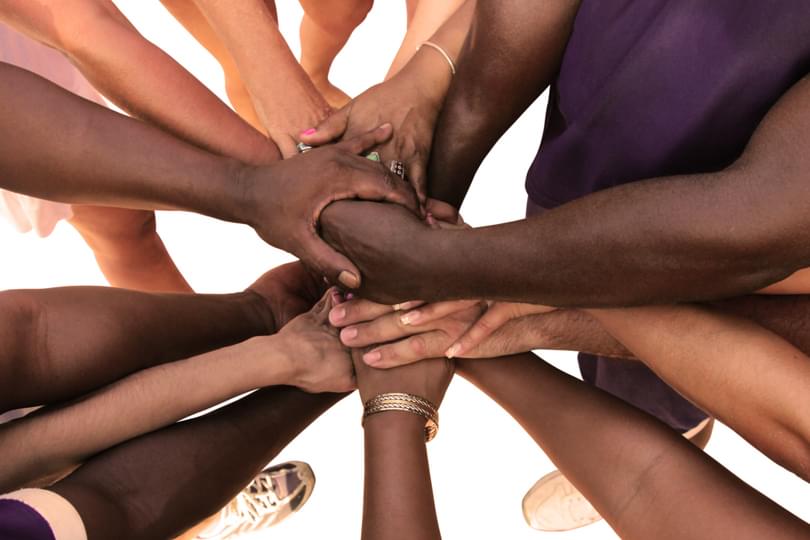
Human nature is often blamed for many of the ills in society and politics, with seemingly devastating results. For example, the cognitive biases that we all share as human beings—such as overoptimism, loss aversion, or group bias—are argued to contribute to policy failures, crises, wars, and environmental ruin.
Human nature, it seems, gets in the way of what science and rational thought tells us we should be doing for the collective good. This is especially important in the face of the grave challenges of global pandemics, biodiversity loss, and climate change, where even the best-laid plans depend on human behaviour following through in order to achieve success rather than collapsing in failure.
But what if we have overdone blaming human nature for the ills of the world? What about other aspects of human nature that open up opportunities rather than undermining them? While cognitive biases can sometimes undermine cooperation and promote conflict, this is not always the case. Optimism, loss aversion, and groupishness can also bring advantages. After all, the traits of human nature evolved because they helped us make good decisions, not bad ones. While the modern world is very different from the one in which we evolved, social and political life is still heavily dependent on the ancient challenges of strategic decision-making and social interactions, often in a fast moving environment of limited information, uncertainty, and competition, where we must lean heavily on instinct in the absence of foresight.
In my new book, Strategic Instincts: The Adaptive Advantages of Cognitive Biases in International Politics (Princeton University Press, 2020), I explore when common biases of human psychology might lead to positive rather than negative outcomes—“strategic instincts” that help us achieve success rather than failure. For example, I examine the role of optimism in the American Revolution, a poorly equipped insurgency on a shoe-string, taking on a Great Britain that was hardened to war and accustomed to victory, and at the time a dominant global superpower. I argue that without a remarkable level of optimism, even overoptimism, George Washington and the colonial army would never have carried the fight through the many years of repeated military set backs, the constant melting away of its volunteer soldiers, or the hardships of Valley Forge. Historian John Ferling recognized “a gambler’s audacity to Washington,” that set him apart from others and allowed him to achieve what many saw as “a miracle.”
How might strategic instincts apply to our work at the Oxford Martin School? Human behavior and psychology is often at the heart of barriers to conservation, environmental resource management, and mitigating climate change. To avert these dangers, humans have to set aside self-interest for the greater good, and discard short-term gains for distant or even inter-generational returns. This makes current challenges to the planet especially daunting and difficult, from expanding populations and dwindling resources to species extinction and climate change. It can seem like we are trapped in a vicious circle in which our pursuit of human needs just digs us an ever-deeper hole.
Perhaps, however, human nature can help. Some inspirational optimism, taking risks to avert losses, and greater social cohesion in the face of such challenges could make all the difference. As one commentator railed against nations’ failure to address the United Nations’ ambitious Millennium Development Goals to eradicate poverty and hunger: “It is pessimism, scepticism and cynicism that are the three worst enemies of the global anti-poverty agenda.” We don’t want to be reckless and set impossible goals, but we may need more optimism—or more optimistic leaders—if we are to commit the necessary resources and lead others in solving our massive global challenges. We certainly won’t achieve great things if they are not attempted for fear of trying. “Far better it is to dare mighty things,” as Teddy Roosevelt put it, and risk failures along the way than to fail to try.
The range of potential adaptive advantages of cognitive biases are diverse. Optimism can make leaders strive for peace rather than war, even or especially despite severe criticism or obstacles, where a rational actor might understandably give up. The aversion to a losing a species to extinction can make individuals commit their lives to saving them, when a rational actor would calculate that the cost is too high. The in-group/out-group bias might lead citizens to reduce their self-interest, rather than increase it, if they identify with a broader global in-group committed to a common cause. In other words, the same cognitive biases that are argued to lead us into disaster can also—under the right circumstances—serve as strategic instincts leading us instead to solutions and success. Arguably, it is a critical and undervalued element of saving the planet. But we need to recognize that human nature is a double-edge sword, and while we may lament and must curtail its excesses, we must also increase our efforts to learn how to channel it to help.
This opinion piece reflects the views of the author, and does not necessarily reflect the position of the Oxford Martin School or the University of Oxford. Any errors or omissions are those of the author.
